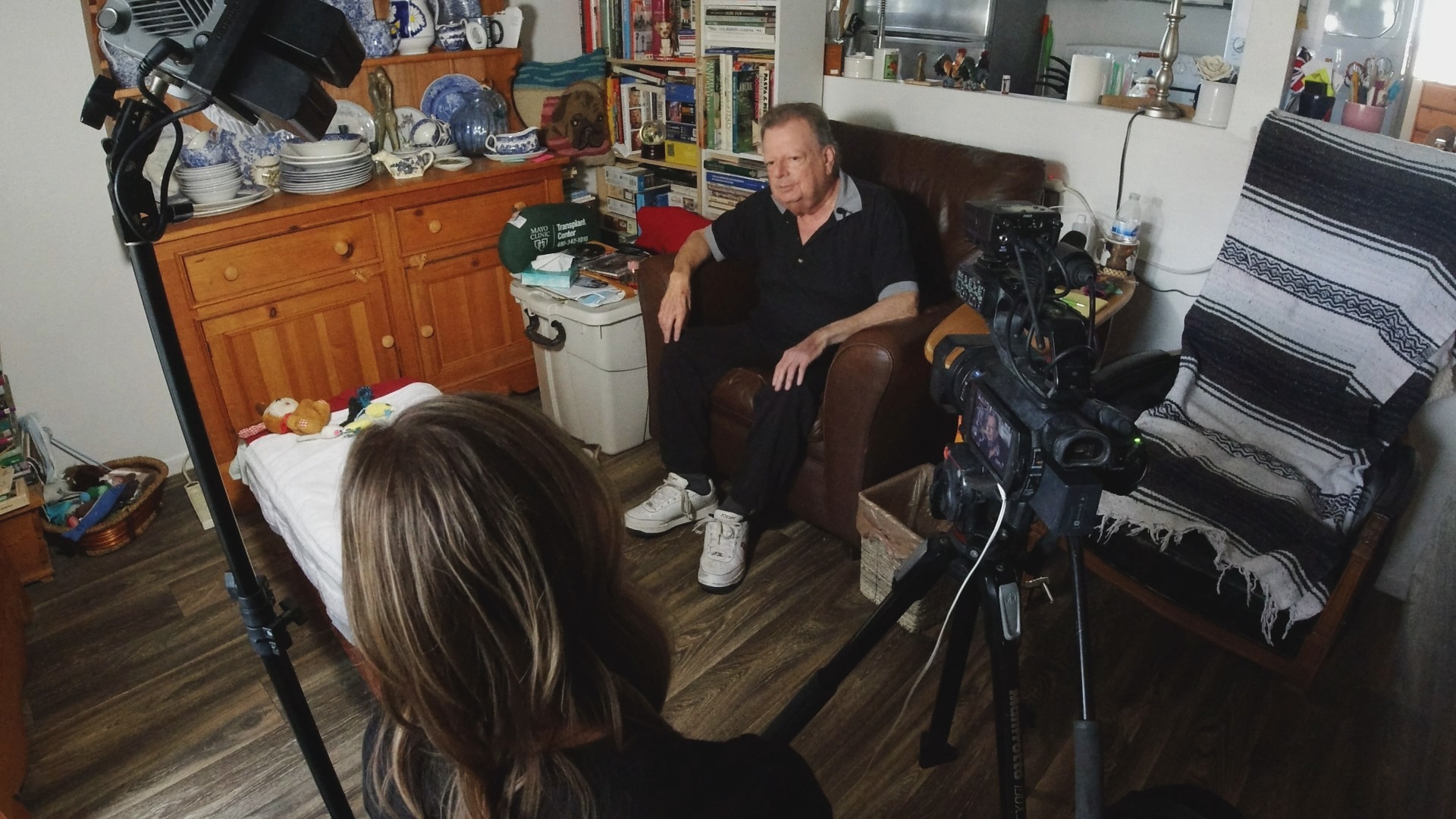PHOENIX — Sid Levin has spent this last year navigating two different types of procedures: a kidney transplant and the Arizona Department of Economic Security's decision-making process.
"It's been much harder with the DES than anything medical I've gone through," Levin said.
Levin and his wife, Patricia, moved to the Valley for his transplant with the help of his former client, Mike Dalager. As Levin's medical struggles kept him out of work, Dalager stepped in to assist the couple.
"They're an elderly couple, and Patricia is basically Sid's caretaker," Dalager said. "And so I continue to cover their rent and cover their APS utility bill."
But they've been doing what they can, Levin was able to get Social Security for both he and his wife, and has sought Supplemental Nutrition Assistance Program (SNAP) benefits to help out with the couple's food expenses.
The couple physically went to the DES office near them and waited for over an hour, Levin said, to have to take home paperwork to make copies of and send back in. Levin said DES then lost that paperwork, so they copied it again and eventually had to go back down in person.
After a review, Levin said he finally got DES' determination.
"Well, we put all your information in the computer in the scoring system that we have... and we can give you $23 for the month'," Levin said. "I said, 'Excuse me? For two people to live on? $23?'"
According to DES, $23 is the minimum benefit.
"My answer to that was, 'Well that'll get you a meal at Chick-fil-A and that's it," Dalager said.
The reason for being issued the minimum benefit, Levin said, is because of Dalager's financial help.
"It's unfortunate that I would have to abandon them, basically, in order for their monthly stipend - or whatever it is - amount to increase," Dalager said. "Because by potentially abandoning them and not covering certain expenses, they end up homeless and evicted, and that's what we're trying to avoid here."
12News brought Levin's case to DES. A spokesperson told us they can't talk about specific cases.
"DES strictly adheres to all federal and state law and guidance for the Supplemental Nutrition Assistance Program. Nutrition Assistance benefits are calculated by taking the applicant’s household income and expenses into consideration," Brett Bezio, a DES spokesperson, said in part of an emailed statement in response to 12News' request for an interview.
"I'd tell them that scoring system is- is wrong. Just because somebody helps you, it eliminates your ability to get any assistance? That's not right," Levin said.
Bezio said the average benefit for a two-person household is $372, 16 times higher than what Levin was issued.
"The purpose of DES is, is honorable, just maybe, if you know, the higher-ups can get together and solve this, this sort of dead end that we've run into, that would be, you know, greatly appreciated," Dalager said.
Now, Levin is left to navigate an appeal he filed with DES over the benefits issued.
"Hopefully I’ll bounce back, and I won’t need any help from anybody because I never did," Levin said. "I’m 66 years old, I never did my whole life."

